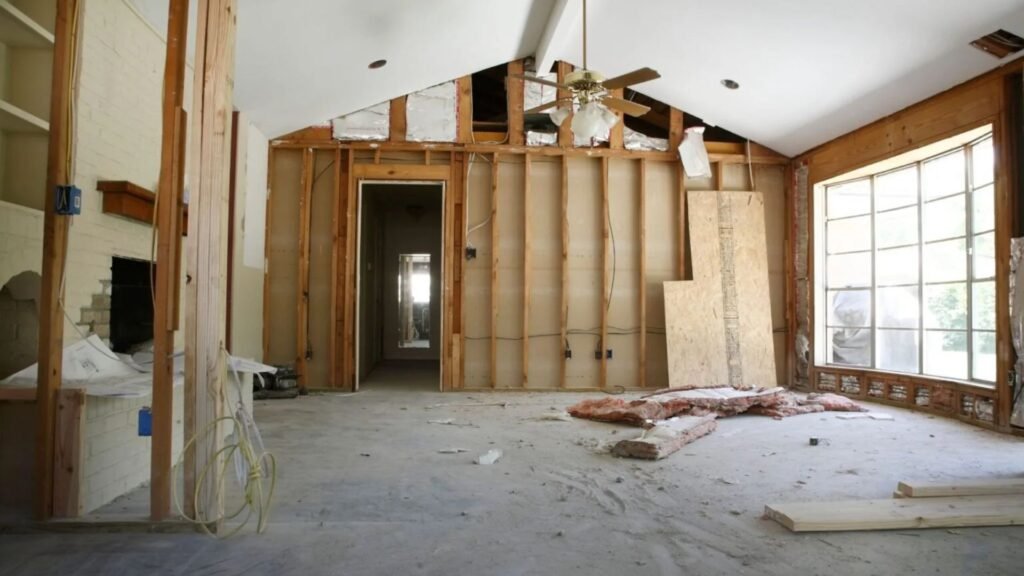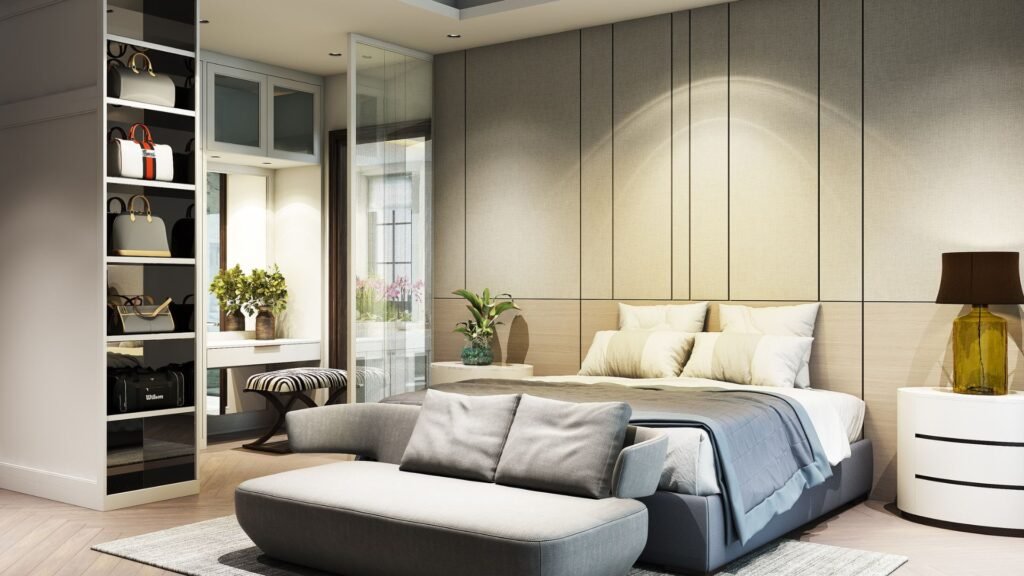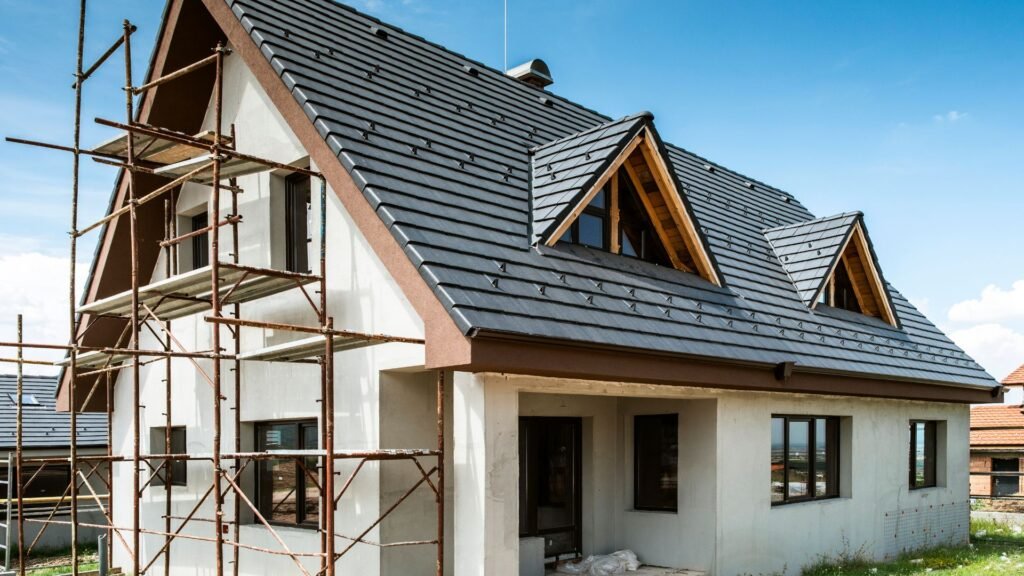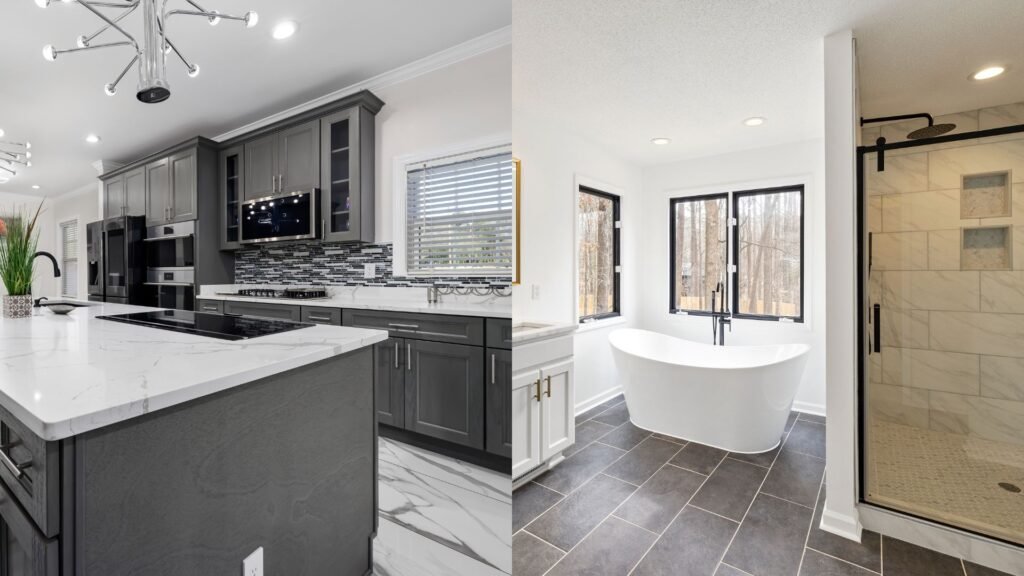Welcome to your go-to guide for understanding home renovation costs in NZ. Whether you’re upgrading a tired kitchen, modernizing your bathroom, or adding space for a growing family, knowing what to expect financially is key. Renovation prices in New Zealand can vary widely depending on your location, the size of the project, and the quality of materials and labour involved. This guide breaks down typical costs, hidden expenses, and budgeting tips to help you plan smarter and avoid financial surprises. If you’re thinking about renovating your home, this practical overview will help you make confident, well-informed decisions every step of the way.
Home renovation costs in NZ typically range from $2,000 to $4,000 per square metre, depending on the scope, materials, and location. A basic kitchen upgrade might cost around $15,000–$25,000, while full home renovations or extensions can exceed $100,000. Always factor in hidden costs like council fees, consents, and unexpected repairs.
Table of Contents
Why Renovate Your Home In NZ?
Renovating your home in New Zealand isn’t just about aesthetics, it’s about creating a better, more functional space that suits your lifestyle today and adds value for the future. Whether you’re upgrading a dated kitchen or building an extra room for a growing family, there are solid, practical reasons to invest in renovations. Here’s why many Kiwis choose to renovate instead of moving or staying stagnant.
Increase Property Value
One of the biggest motivators for renovating is the potential boost in property value. A well-executed renovation, like a new kitchen, bathroom, or open-plan living area, can increase your home’s market appeal and sale price. Even smaller upgrades like modern lighting, repainting, or landscaping can make a noticeable difference when it’s time to sell. Buyers in NZ are often willing to pay more for a move-in-ready home, and renovations help you stay competitive in the housing market.
Improve Lifestyle And Comfort
Renovations aren’t just about resale, they’re about living better now. Upgrading insulation, improving airflow, modernising your bathroom, or adding storage can dramatically change how you feel in your space. A home that works better for your needs can reduce stress, improve energy efficiency, and make day-to-day life more enjoyable. Comfort matters, and even minor upgrades can turn a frustrating layout into a functional haven.
Avoid The Cost Of Moving
Selling your home and buying a new one comes with major costs, agent fees, legal fees, moving expenses, and often, a bigger mortgage. Renovating allows you to stay in the area you love without the disruption of relocating. You can invest those same funds into making your current home better suited to your needs, without sacrificing location, schools, or community ties.
Adapt To Life Changes
As life evolves, so should your space. Maybe you’re welcoming a new baby, need a home office, or want a more accessible layout as you age. Renovations allow you to respond to those changes without starting over. Adding an extra room, creating a work-from-home zone, or building an outdoor space can meet new needs without uprooting your life.
Speak To Your Own Needs
Every renovation story is personal. Maybe your kitchen feels cramped during family dinners. Maybe you’ve always dreamed of a freestanding bath. Or maybe rising energy bills made you look into better insulation. Whatever your reason, renovating gives you the power to shape your home around your real, lived experience, not just trends or resale value. It’s about making your space truly yours.
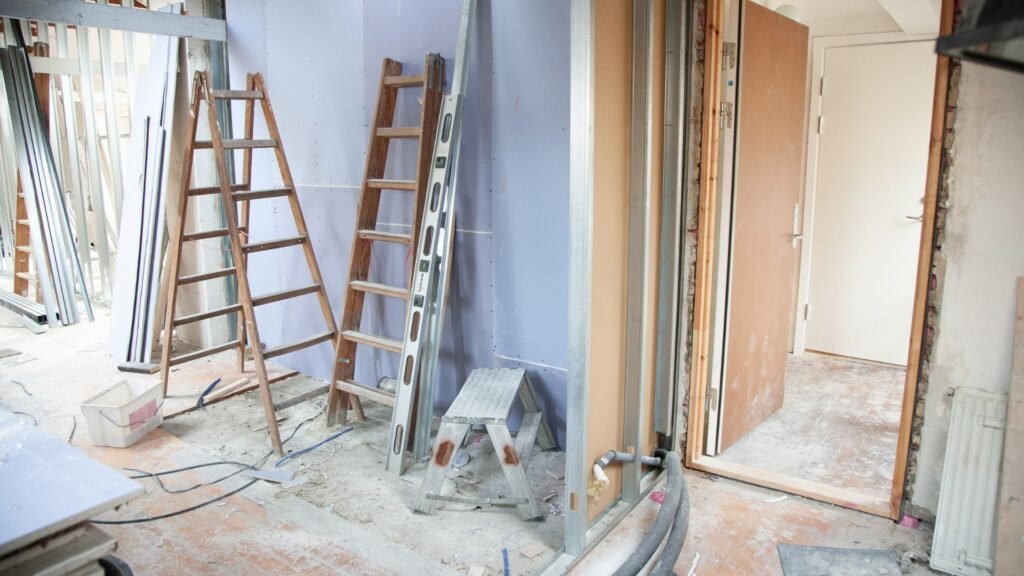
What Affects Home Renovation Costs In NZ?
When planning a home renovation in New Zealand, one of the first questions that comes up is: “How much will it cost?” The truth is, renovation costs can vary greatly depending on several key factors. Understanding these elements helps you create a more realistic budget and avoid financial surprises during the process. Below are the most common factors that influence renovation costs across the country.
Size And Complexity Of The Project
The larger and more complex your renovation, the more you’ll pay. A simple bathroom makeover is vastly different from a full-home extension. Complex jobs require more time, materials, and skilled labour. For example, knocking down walls, relocating plumbing, or changing the layout of your home can quickly increase costs.
In general, renovations are priced by square metre. So, the bigger the area you’re working on, the higher the cost. If the job involves structural work or custom designs, expect even higher rates.
Age And Condition Of The Home
Older homes often hide unexpected issues that can add thousands to your budget. You might discover outdated wiring, rotten timber, asbestos, or poor insulation. Fixing these problems before renovation can be time-consuming and costly, but it’s necessary to ensure safety and compliance.
Newer homes may be more predictable and cheaper to renovate since many systems (like plumbing and electrical) meet modern standards. Still, each home is different, so a thorough inspection is worth doing before work begins.
Council Consents And Compliance
Depending on the type of work you’re doing, you may need council consent. Any structural changes, plumbing relocations, or building extensions usually require approval. The process includes fees, time for inspections, and sometimes extra documentation like architectural drawings or engineering reports.
Delays or issues with council compliance can impact your timeline and overall budget. Always factor in these administrative costs early to avoid hold-ups later.
Material Choices And Quality
Your material selection plays a huge role in your final costs. Choosing high-end tiles, benchtops, or fixtures will increase your total spend. On the other hand, opting for more affordable alternatives can help you stick to a tighter budget without sacrificing function.
It’s not just about price, though. Quality materials tend to last longer and may reduce maintenance or repair costs in the long run. Many Kiwi homeowners choose mid-range options that balance cost and durability.
Labour Availability And Hourly Rates
Skilled tradespeople, builders, plumbers, electricians, tilers, make up a significant part of your renovation budget. In busy markets or during high-demand periods, labour shortages can push rates up. Some regions also have limited access to certain specialists, which may delay your project.
Hourly rates can range widely, depending on the job type and experience of the contractor. Always get multiple quotes and ask for clear breakdowns before choosing who to work with.
Regional Differences
Where you live in New Zealand also affects your renovation costs. For example, projects in Auckland or Wellington tend to be more expensive due to higher demand, labour rates, and property values. On the other hand, renovating in smaller towns or rural areas may cost less, but you could face challenges with material delivery or finding experienced contractors. Transport fees, regional supply chains, and even local council regulations can all influence the final price you’ll pay.
Understanding these cost factors allows you to better plan and prioritize your renovation. By preparing for potential challenges and making smart decisions along the way, you’ll avoid overspending and make your investment go further.
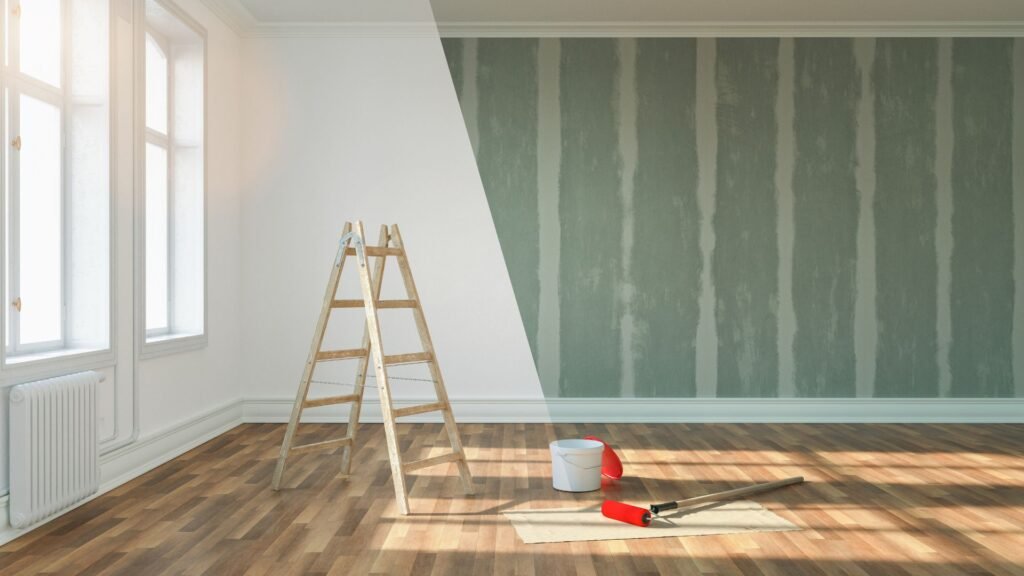
Breakdown Of Common Renovation Costs
When you’re planning a renovation in New Zealand, one of the first things you’ll want to know is where your money will likely go. Costs vary depending on the type of project, the materials you choose, and how much professional help you need. Below is a detailed breakdown of common renovation areas and what typically influences the final cost.
Kitchen
The kitchen is often one of the most expensive areas to renovate. In New Zealand, a standard kitchen upgrade typically ranges from $15,000 to $35,000. High-end remodels can exceed $50,000.
The layout plays a major role in cost. Keeping plumbing and electrical work in the same place helps reduce expenses. But if you’re relocating sinks or ovens, costs can quickly rise.
Appliances also matter. Opting for premium brands or integrated units increases both cost and installation complexity. Cabinets are another major factor. Custom cabinetry is more expensive than off-the-shelf options but may be worth it if space is limited or oddly shaped.
If you’re working on a tight budget, consider minor upgrades instead of a full remodel. Repainting cabinets, updating handles, replacing benchtops, or swapping out old lighting can breathe new life into your kitchen without the high price tag.
Bathroom
Bathroom renovations typically range between $15,000 and $30,000, depending on size and complexity. Plumbing changes are the main cost driver, especially if fixtures are being moved. High-end tiles, underfloor heating, and luxury fittings can also push costs up.
Tiling and waterproofing are essential, and these steps must be done properly to avoid future damage. Labour for these tasks is usually specialized and can add significant expense.
Don’t overlook hidden issues. Bathrooms are common spots for mold, water damage, and structural rot, especially in older homes. These problems often remain undetected until demolition begins, so it’s smart to build in a buffer for unforeseen repairs.
Living Areas And Bedrooms
Renovating living rooms or bedrooms is generally less expensive compared to kitchens or bathrooms. Costs mostly depend on flooring, wall treatments, and lighting. Installing new carpet or laminate flooring ranges from $50 to $150 per square metre. Timber flooring costs more but adds value and durability.
Lighting upgrades, such as recessed lights or feature pendants, can make a big impact without breaking the bank. Insulation is another smart investment, especially if your home lacks it, good insulation improves comfort and reduces heating bills.
Wall finishes also affect your total spend. Repainting is affordable and fast, while wallpaper and new linings like plasterboard or timber panels increase both material and labour costs.
Exterior Upgrades
The outside of your home often gets overlooked, but it plays a big role in property value and weather protection. Common upgrades include roof replacement, repainting, and recladding. Roof replacements can cost between $15,000 and $30,000, depending on materials and size. Repainting a full house typically falls in the $10,000 to $20,000 range.
If the cladding is damaged or outdated, recladding may be necessary, and costly. Expect to pay upwards of $150,000 for full reclads on older homes with weather-tightness issues.
Outdoor living spaces are another area to consider. Building a timber deck, for example, can cost anywhere from $300 to $800 per square metre. Adding pergolas, lighting, or outdoor kitchens pushes that number higher.
Extensions Or Major Remodels
If you’re planning to add rooms or completely rework your home’s layout, be prepared for serious investment. Extensions generally start around $60,000 and can go well beyond $200,000 depending on scale.
Foundations and structural work take up a large chunk of the budget. If your extension requires excavation, retaining walls, or steel framing, these costs escalate quickly. You’ll also need to account for project management, builder coordination, and architectural or design fees, which can add another 10% to 15% to your overall cost.
Don’t forget about council consents. Any structural changes, plumbing, or significant building work must comply with local building codes. Application fees, inspection costs, and potential design changes all impact your final budget.
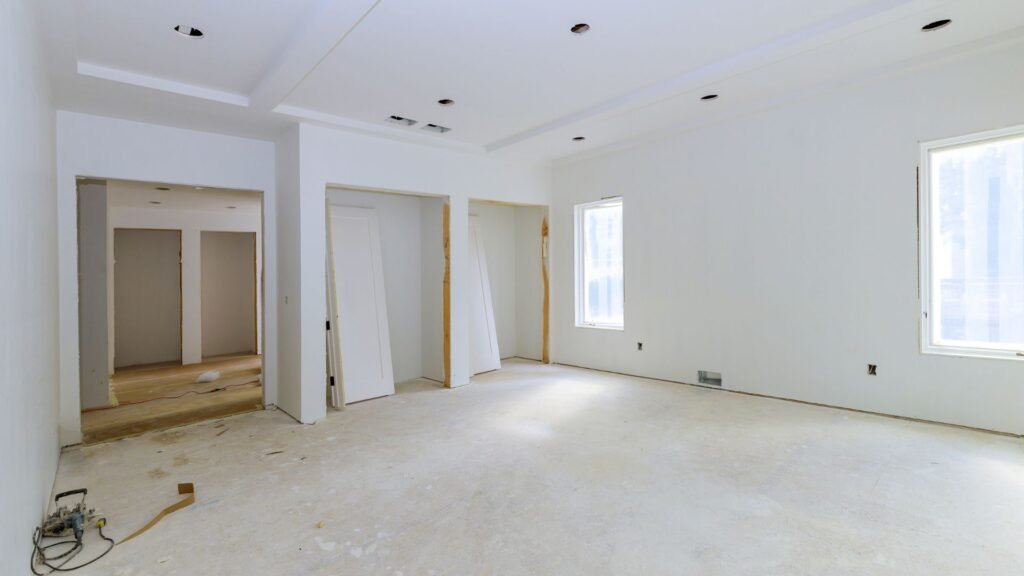
Hidden Or Overlooked Costs To Watch For
When planning a home renovation in New Zealand, most people focus on the big-ticket items, materials, labour, and contractor fees. But there are often hidden or overlooked costs that can sneak up on you if you’re not prepared. These unexpected expenses can blow out your budget, cause delays, or create stress during what should be an exciting project.
Below are some of the most common hidden costs to factor in early. They may not be obvious at first, but they’re just as real as the cost of a new kitchen or bathroom.
Council Consent And Inspection Fees
In New Zealand, many renovation projects require building consent from your local council. This applies to structural work, plumbing changes, extensions, or anything that affects the building’s integrity. The process isn’t free. Council fees can range from a few hundred to several thousand dollars, depending on the size and type of work.
In addition to the initial consent fee, there may be inspection charges at different stages of the project. These inspections are mandatory and ensure that your renovation meets the Building Code. If you’re not aware of these costs upfront, they can add significant strain to your budget.
Temporary Accommodation
If your home becomes unliveable during the renovation, you might need to move out for a while. This could mean staying with family or renting a short-term place. Either way, temporary accommodation adds extra costs, sometimes thousands, especially if the project takes longer than expected.
Many homeowners overlook this when planning. But if your kitchen or bathroom is completely out of action, living on-site may not be realistic. Always plan for this possibility, even if you hope to stay home.
Unexpected Damage
Older homes often hide problems beneath the surface. Once the renovation begins, builders may uncover hidden damage, such as rotting timber, water leaks, asbestos, or outdated electrical wiring. These issues are expensive to fix and often require specialist services.
For example, removing asbestos safely in New Zealand is a regulated process and can cost thousands. Electrical rewiring may also be necessary to meet current safety standards. These aren’t things you can ignore or delay, and they usually have to be dealt with before the rest of the renovation continues.
Design Or Consultation Fees
Hiring an architect, interior designer, or structural engineer can elevate the quality of your renovation. But their services aren’t cheap. Many charge hourly rates, consultation fees, or a percentage of the total project cost.
Even if you’re working with a design-build company, you might still pay separately for plans, sketches, or feasibility studies. These fees can add up quickly, especially on larger or more complex renovations. Always ask upfront what’s included in your contractor’s quote and what will be billed separately.
Site Clean-Up And Rubbish Removal
At the end of your project, your site will likely be filled with debris, offcuts, packaging, demolished materials, and waste. Many homeowners assume this is included in the contractor’s quote, but it often isn’t.
Some builders will clean up as part of their service, but others leave it to the homeowner or charge extra. Hiring a skip bin or arranging private rubbish removal could cost several hundred dollars, depending on the volume and type of waste. It’s not glamorous, but it’s part of finishing the job right.
By planning for these hidden costs, you protect your budget, avoid surprises, and keep your renovation on track. A good rule of thumb is to add a 10–20% buffer to your total renovation estimate, just in case. And always ask your builder or project manager what’s included, what’s not, and what might come up once the work begins.
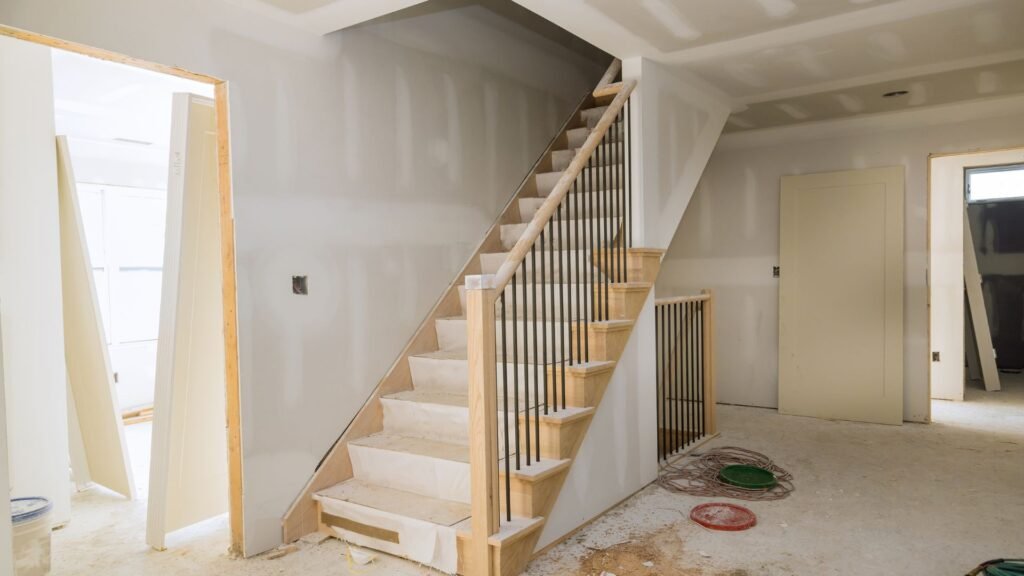
Budgeting Tips For Kiwi Homeowners
Renovating your home is exciting, but costs can quickly spiral if you’re not prepared. A clear budget helps keep your project on track while avoiding stress and overspending. Here’s how you can approach your home renovation budget like a pro, without sacrificing quality or peace of mind.
Start With A Clear Plan And Scope
Before you even talk to a builder or look at quotes, define exactly what you want to do. Are you upgrading one room or the whole house? Are you changing the layout or just replacing fixtures? A well-defined scope helps you stay focused and gives contractors the detail they need to provide accurate pricing. This step also helps prevent expensive changes once work begins.
Always Build In A 10–20% Contingency
No matter how well you plan, surprises happen. Hidden water damage, outdated wiring, or council-related delays can push your budget higher. Building in a 10% to 20% buffer ensures you’re not caught off guard. For example, if you’ve budgeted $50,000 for your renovation, keep an extra $5,000 to $10,000 on hand just in case. It’s better to have it and not need it than the other way around.
Prioritize Needs Vs Nice-To-Haves
Not everything needs to be top-of-the-line. List out what’s essential, like fixing a leaking roof or adding insulation, before thinking about design extras like marble countertops or imported tiles. Rank your list and decide what must be done now and what can wait. This approach helps you spend money where it truly matters, especially if you’re working with a tight budget.
Get Multiple Quotes From Local Builders
Never settle for the first quote. Reach out to at least three builders or contractors in your area. Compare not just the total cost, but also what’s included, timelines, and whether they’re willing to provide references. Local builders often know regional council rules and can source materials faster, which might save you time and money.
Consider Doing Simple Tasks Yourself
You don’t need to be a professional to contribute to your renovation. Jobs like painting, removing old carpets, or light demolition can often be handled by homeowners. Doing this work yourself can shave thousands off your final bill. Just make sure you leave the electrical, plumbing, and structural tasks to the licensed pros, those areas are tightly regulated in New Zealand.
Use Spreadsheets Or Budget Calculators
Keep track of every expense in a simple spreadsheet or use a free online budget calculator made for NZ homeowners. Record quotes, material prices, and unexpected costs as they come up. This gives you a live overview of where your money’s going and helps you stay accountable. You can try tools like Sorted’s budgeting tool or Excel templates tailored for renovations.
Taking a planned, realistic approach to budgeting makes your renovation smoother and less stressful. When you know where your money’s going, and where it shouldn’t be, you make better decisions and get more value from every dollar spent.
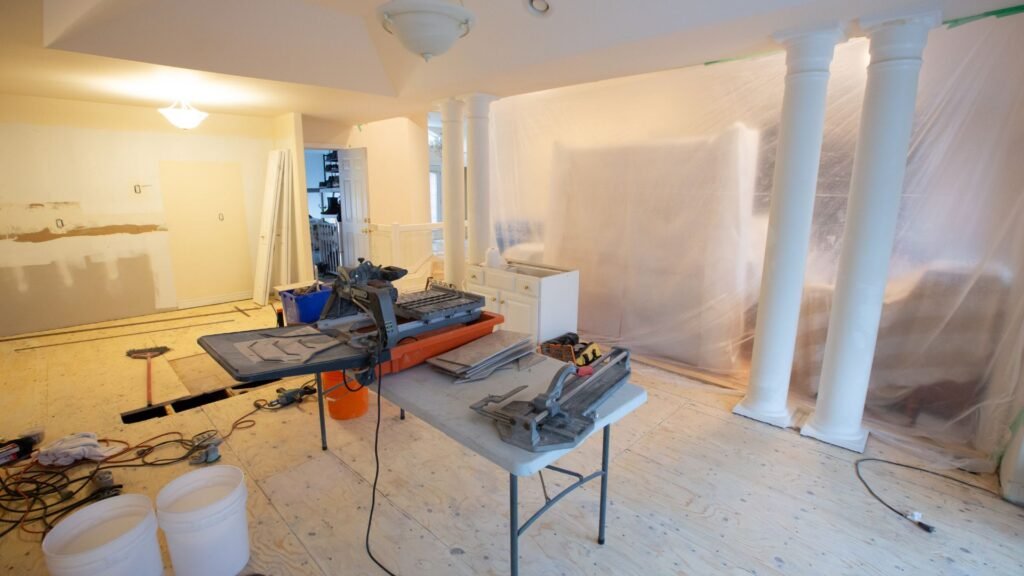
Financing Your Renovation In NZ
Renovating a home in New Zealand can be exciting, but it also comes with serious financial decisions. Whether you’re planning a small bathroom update or a full house extension, having a clear funding strategy is crucial. This section breaks down the most common ways Kiwis pay for their renovations and how you can make smart financial choices based on your situation.
Savings Vs Home Loan Top-Ups
Using your savings is often the most straightforward option. If you’ve been putting money aside for a while, paying upfront helps you avoid interest and debt. It gives you full control and flexibility throughout the renovation process. But if your savings won’t stretch far enough, or if you’d rather keep some funds for emergencies, there’s another option worth considering.
A home loan top-up allows you to borrow against the equity in your property. This means increasing your existing mortgage to cover renovation costs. It usually comes with a lower interest rate compared to personal loans or credit cards. For example, if your house is valued at $800,000 and your current mortgage is $500,000, you may be able to borrow part of the difference, depending on your bank’s criteria.
Renovation Loans And Personal Loans
If topping up your mortgage isn’t feasible, renovation loans and personal loans are other common routes. Renovation loans are often tailored for home upgrades and may offer more flexible terms than standard personal loans. However, they still tend to have higher interest rates than home loans.
Personal loans are quick to access and don’t require home equity, making them ideal for smaller projects. But be cautious, interest rates can be steep, and repayment periods are usually shorter. It’s best to compare options from banks, credit unions, and online lenders to find the most competitive terms.
Talk To Your Bank Early
One of the biggest mistakes homeowners make is waiting too long to talk to their bank. Start the conversation early, even before you’ve hired a builder or drafted plans. Your bank can walk you through your financing options, tell you what documents you’ll need, and give you an idea of how much you can realistically borrow.
Getting pre-approval helps set a clear renovation budget and shows contractors you’re serious. It also avoids the risk of starting work and running out of funds halfway through.
Consider Using A Mortgage Broker
If the financing process feels overwhelming, a mortgage broker can help simplify it. Brokers act as a middleman between you and the lenders. They’ll assess your financial situation, compare loan products, and help you find the best rates based on your goals.
Unlike banks, which only offer their own products, brokers have access to multiple lenders. They may even find special deals that aren’t available publicly. Plus, many mortgage brokers in NZ don’t charge a fee, they’re paid by the lender after the loan is approved.
Choosing the right way to finance your renovation can save you thousands in interest and fees. Whether you’re using savings, extending your mortgage, or applying for a loan, plan ahead and explore every option. A smart financial start leads to a smoother, more stress-free renovation journey.
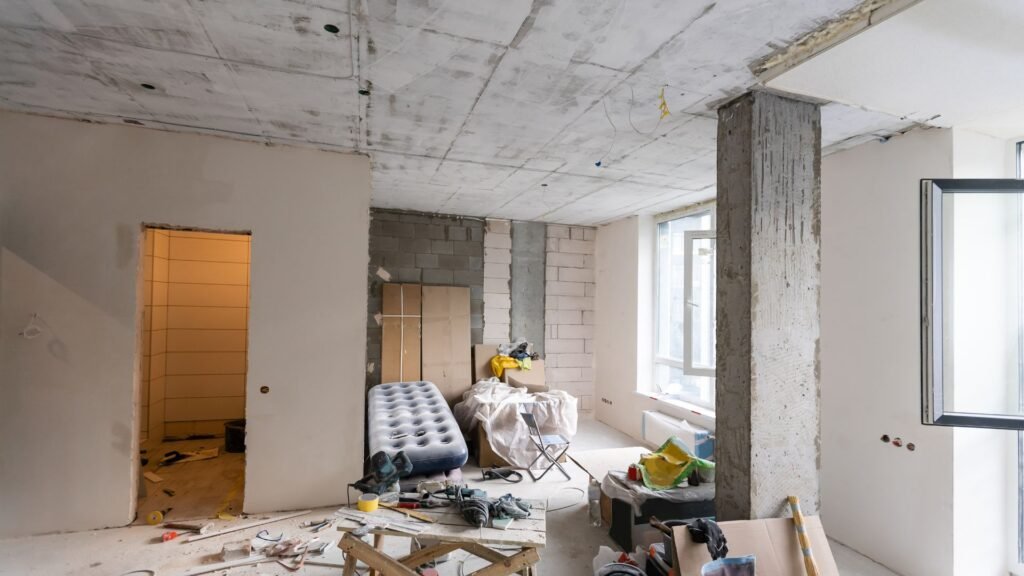
Ways To Save Without Cutting Corners
Renovating your home doesn’t have to break the bank. With the right approach, you can cut costs without compromising on quality, safety, or design. It’s not about going cheap, it’s about spending smart. Here are four practical ways New Zealand homeowners can reduce renovation expenses while still getting great results.
Choose Durable, Mid-Range Materials
You don’t need high-end luxury finishes to get a beautiful, long-lasting result. Mid-range materials often offer the best value for money. For example, instead of custom cabinetry, consider pre-built options made from moisture-resistant MDF. For flooring, quality laminate or engineered wood can mimic the look of timber without the price tag.
Durability matters more than branding. A reliable, mid-range tap that lasts 10 years is better than a designer fixture that needs replacing in five. Focus on performance, warranty, and user reviews when selecting materials. This balance helps stretch your renovation budget without sacrificing longevity or appearance.
Reuse Existing Fixtures Where Possible
Before tossing out that old vanity or kitchen cabinet, ask yourself: can it be cleaned, painted, or re-faced? Reusing existing fixtures is a smart, eco-friendly way to cut costs. In many homes, updating handles, hinges, or countertops can give a fresh new look without replacing entire units.
This also applies to appliances. If your stove or dishwasher is still in good condition, keep it. Replacing everything at once can quickly eat into your budget. Even small decisions like salvaging light fixtures or repurposing shelves can lead to meaningful savings.
Shop Local For Better Delivery And Support
Buying materials from local NZ suppliers can help you avoid high shipping fees and long wait times. It also means faster returns and easier customer support if something goes wrong. Plus, you’re supporting the local economy and often getting products better suited to New Zealand conditions.
Builders and tradies often have preferred local stores they trust, asking for recommendations. You might get trade discounts or bundled deals. Local stores are also more likely to understand compliance rules, especially if you’re doing consent-related work.
Stage Renovations If Full Scope Is Unaffordable Now
If your dream renovation exceeds your current budget, don’t rush it. Prioritize the most urgent areas, maybe the bathroom needs waterproofing, but the lounge makeover can wait. Staging the work means you can spread costs over time without resorting to cheap finishes or risky shortcuts.
Start with what’s necessary or time-sensitive. Finish one stage properly before moving to the next. This approach also gives you breathing room to reassess your needs and budget as the project progresses. You avoid financial stress while still moving forward with your plans.
Saving money on your renovation doesn’t mean compromising on results. With smart choices and a clear plan, you can stretch your budget further while still creating a space you love to live in.
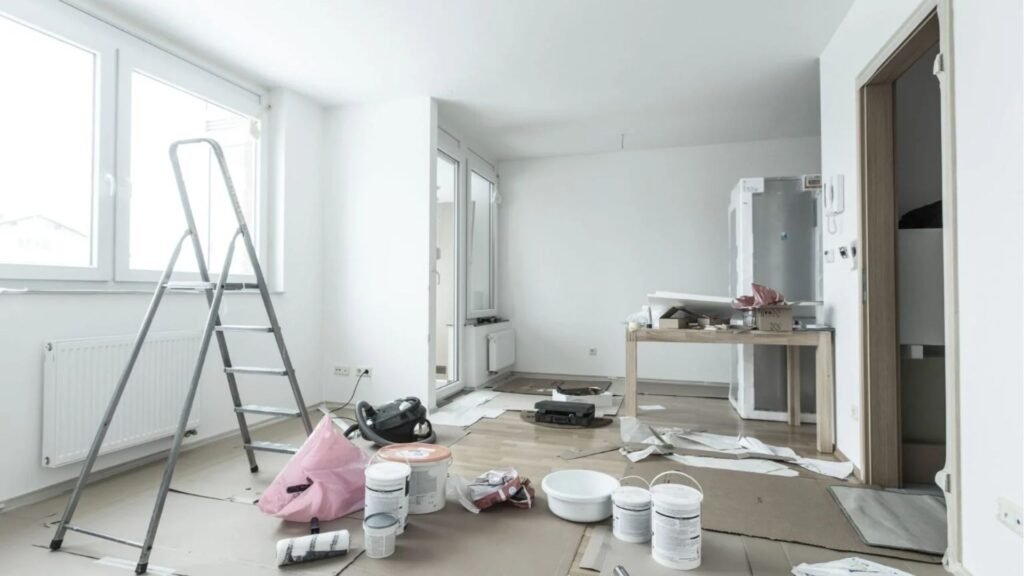
Should You DIY Or Hire A Pro?
Renovating your home in New Zealand comes with an important decision: should you do it yourself or call in a professional? The answer isn’t always clear-cut. It depends on the type of work, your skill level, how much time you have, and how comfortable you are managing risks.
Let’s break it down so you can make a smart, stress-free choice.
When DIY Can Make Sense
There are certain jobs around the house that many Kiwi homeowners can tackle without much trouble. If you enjoy hands-on work and want to save on labour costs, DIY might be the right move for things like:
- Painting walls or ceilings
- Installing curtain rails or shelving
- Basic landscaping such as planting or laying garden edging
- Removing old carpet or wallpaper
- Minor cosmetic repairs
These types of tasks usually don’t require council consent or licenses. You’ll also find tons of online tutorials to guide you. If you’re confident in your abilities and enjoy doing the work, this can be a great way to cut costs without compromising quality.
- Just remember: DIY often takes longer than expected. So make sure you’re not working against a tight deadline.
When Licensed Professionals Are Legally Required
Some jobs are not just difficult, they’re illegal to perform without proper qualifications. In New Zealand, you must hire licensed professionals for work that involves:
- Electrical wiring or rewiring
- Plumbing and drainage
- Gas fitting
- Structural changes to walls or foundations
- Roofing or waterproofing in wet areas (like bathrooms)
Why? Because these jobs come with serious safety risks if done incorrectly. Improper electrical or plumbing work can lead to fires, floods, or long-term damage, and your insurance might not cover it.
You also need a licensed professional if your project requires building consent. Doing it without the right paperwork can lead to fines or issues when you try to sell your home later.
Weighing Time, Skill, And Stress
Even if a job looks DIY-friendly, ask yourself:
- Do I really have the time to finish this properly?
- Will it cause stress or interrupt my daily life?
- Could mistakes end up costing more in the long run?
If you’re juggling work, kids, or other commitments, hiring a pro might be worth every dollar. Experienced tradies can often finish the job faster, get better prices on materials, and deliver a more polished result.
Still, that doesn’t mean you should hand over everything. Many homeowners take a hybrid approach, doing prep work or painting themselves, then hiring licensed tradies for the technical parts. It’s a smart way to manage your budget while still ensuring a safe, professional finish.
Choosing between DIY and professional help is about balance. Be honest about your abilities, and don’t be afraid to ask for quotes or advice from local builders before deciding.
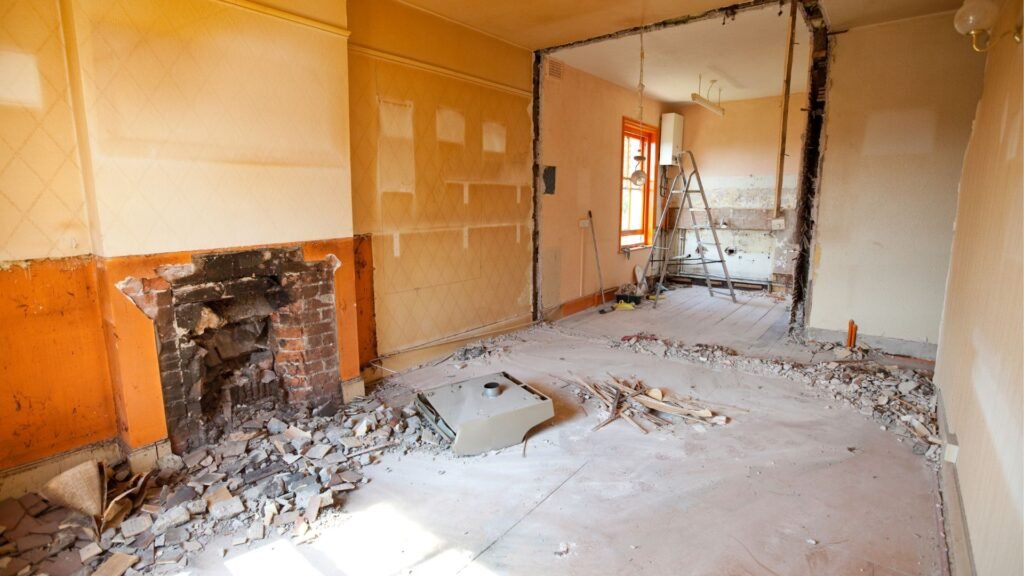
Real NZ Homeowner Stories Or Quotes
Hearing from real people who’ve gone through a home renovation in New Zealand brings helpful context and makes the numbers more relatable. These stories offer practical insights and help you avoid costly mistakes others have already learned the hard way. Below are two genuine case-style examples based on common renovation experiences across New Zealand.
Kitchen Renovation In Hamilton
Emma and Liam, a couple living in Hamilton, decided to upgrade their 1990s kitchen to improve functionality and add resale value. Their project included new cabinetry, benchtops, flooring, lighting, and updated appliances. The total cost came to around $28,000.
They got three quotes from local builders and chose a mid-range option that balanced quality and price. The process took six weeks from demo to final touches.
What They Learned
- Custom cabinetry made up the largest chunk of their budget.
- Delays with imported materials pushed the timeline by two weeks.
- They said they would plan for a larger contingency fund next time, as small design changes added unexpected costs.
Quote From Emma
“We thought $25,000 would cover everything, but little changes really added up. Still, we’re happy with the result, it’s modern, bright, and makes cooking more enjoyable.”
Full Interior Renovation In Christchurch
Jared, a homeowner in Christchurch, tackled a full interior renovation after buying a 1970s home. He updated the kitchen, two bathrooms, flooring, insulation, and painted the entire house. He hired a project manager to oversee trades and help with council approvals.
The total renovation cost came to just under $120,000.
What He Learned
- Hiring a project manager saves time and stress, especially with coordinating trades.
- Upgrading insulation and wiring, which weren’t in the original budget, added $10,000.
- He now recommends doing a full home inspection before budgeting.
Quote From Jared
“The budget blew out because we didn’t expect to replace all the old wiring. If I did it again, I’d get a detailed inspection before locking in numbers.”
Why Real Stories Matter
Hearing about actual costs, decisions, and lessons from Kiwi homeowners helps ground your expectations in reality. While your own project may differ in scope, these experiences remind you to prepare for unexpected issues and always leave room in the budget.
If you’ve renovated a home in NZ, consider sharing your story in the comments, it might help someone else make a smarter decision.
Ready to renovate smarter? Click here to explore our services, learn more about what we do, and see how we can help make your renovation simple, stress-free, and cost-effective.
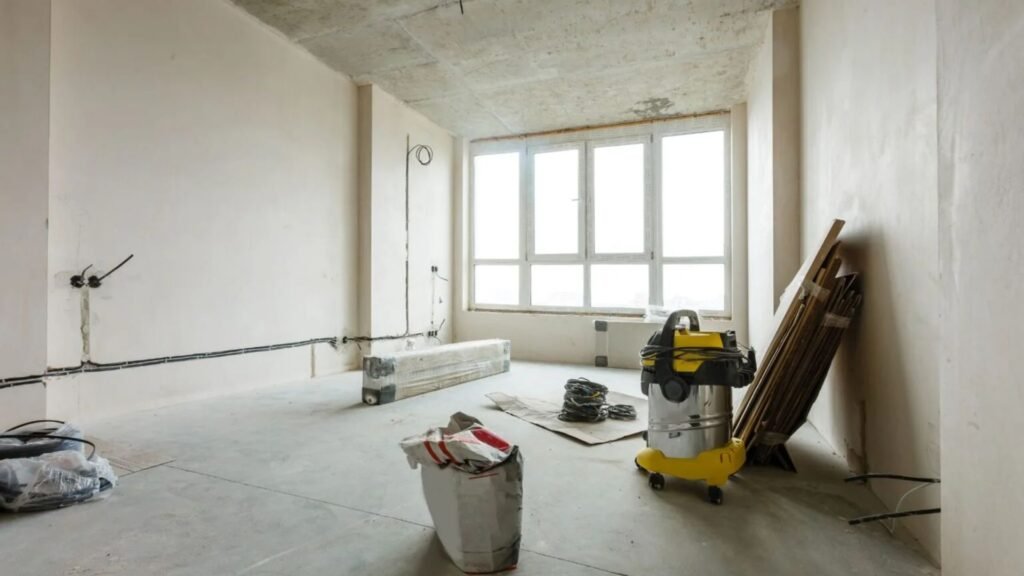
FAQs: About Home Renovation Costs In NZ
What is the average cost of a home renovation in NZ?
The average cost of a home renovation in New Zealand ranges from $2,000 to $4,000 per square metre. Smaller renovations, like bathroom upgrades, may cost around $15,000 to $30,000, while large-scale remodels or extensions can exceed $100,000 depending on materials, labour, and location.
How much does a kitchen renovation cost in New Zealand?
A standard kitchen renovation in NZ typically costs between $15,000 and $35,000. The price depends on the layout, cabinet materials, appliance upgrades, plumbing work, and finishes. High-end kitchen remodels can cost upwards of $50,000.
What factors affect renovation costs the most?
Major factors include the size and complexity of the project, the condition of your current home, quality of materials, labour rates, regional pricing differences, and whether consents or structural changes are needed.
Do I need council consent for all home renovations?
Not all projects need consent, but any structural changes, plumbing alterations, or extensions generally do. Always check with your local council before starting. Skipping consent can lead to legal issues or problems during resale.
What are some hidden renovation costs to watch out for?
Common hidden costs include council consent fees, architect or engineer fees, temporary accommodation if the house is unliveable, asbestos removal, site clean-up, and unexpected repairs like rot, outdated wiring, or poor insulation.
How can I budget effectively for a home renovation?
Start with a detailed plan and itemized estimate. Get multiple quotes, prioritize must-haves, and set aside a 10% to 20% contingency fund for unforeseen issues. Use spreadsheets or renovation budget calculators to track spending.
What’s cheaper: renovating or rebuilding?
It depends on the scale of the project. Small to moderate renovations are usually cheaper, but if your home needs extensive structural work, rebuilding might offer better long-term value. Always compare quotes before deciding.
Can I do parts of the renovation myself to save money?
Yes, you can do DIY tasks like painting, demolition, landscaping, or assembling furniture. However, jobs like plumbing, electrical work, and structural changes must be done by licensed professionals to comply with NZ law.
How long does a typical home renovation take in NZ?
Smaller renovations like a bathroom may take 2 to 4 weeks. Full-house renovations or extensions can take 3 to 6 months or longer, depending on complexity, weather, consent delays, and contractor availability.
Are there financing options for home renovations in NZ?
Yes, options include using savings, topping up your mortgage, taking out a personal or renovation loan, or applying for a building loan. Talk to your bank or a mortgage advisor to find the best solution for your situation.
Conclusion
Renovating your home can be one of the most rewarding decisions you’ll make, but it’s not something to rush into without proper planning. Take your time to understand the full scope of your project, compare quotes, and make decisions that suit both your lifestyle and long-term goals. Whether you’re updating a kitchen, extending your home, or tackling a full renovation, it helps to approach each step with clarity and a realistic budget. For extra guidance, check out trusted New Zealand resources like building.govt.nz for building regulations or consumer.org.nz for renovation tips and homeowner rights. If you’ve got questions or want to share your own experience, feel free to drop a comment, we’d love to hear from you.

